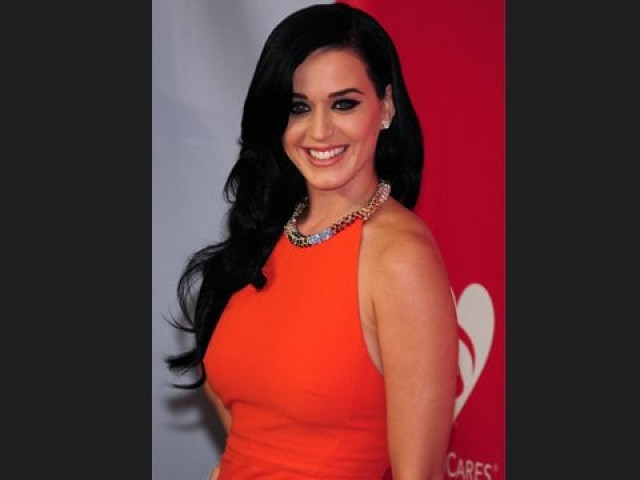The pain is real
We have 5,000 euphemisms for menstruation, but still can't talk about it openly

At the MTV Video Music Awards this year, Katy Perry wasn't just the talk of the night because of her hits like Roar, Dark Horse, and Firework, nor because she was receiving the Video Vanguard awarda nod to her impressive career. Instead, it was her off-hand quip that made waves: "Oh my gosh. I did that all on the first day of my period, too. Can you believe it?" she joked after accepting the award from her fiancé, Orlando Bloom.
But, as with any conversation about menstruation, the reactions were a mixed bag. Fans were quick to cheer her on, calling her "so real" and "such a mood." Some even joked about syncing up with her. But not everyone was thrilled by her comment. Criticism rolled in, with one user on X (formerly known as Twitter) asking, "Why did Katy Perry feel the need to tell us she was on her period tonight?" Another added, "Katy Perry just sucks. Period." A few other detractors threw around accusations of oversharing, calling it "TMI."
The fact that such a harmless remark about something as common as a period could cause a stir says a lot about how far we still have to go in normalising this basic fact of life. Periods have existed as long as humans have, and yet talking about them in public still ruffles feathers. Katy's remark was hardly graphic, and it wasn't meant to gross anyone outit was just a fact. Despite the spotlight her achievement deserved, some decided to focus on her daring to mention a bodily function. We should be asking ourselves why, in 2024, it's still taboo to even hint at a period.
Euphemising the usual
This social discomfort around periods isn't new. It's baked into our cultures, languages, and even childhoods. I remember my first exposure to the topic at a posh private school in Karachi. A special all-girls assembly introduced us to "the visitors"a mysterious euphemism for periods that left younger students confused and older girls giggling. It was the beginning of our education in societal euphemisms: periods had to be whispered about, disguised with silly nicknames.
Uterus. Yuck. What a horrible word. Periods. Even worse. Euphemisms are everywhere. Languages have always contained them: the Greeks called them "the Furies", those rather angry goddesses. And they gave us the word "euphemism" in the first place - "to use a favourable word in place of an inauspicious one". According to Clue, we have 5,000 for menstruation, but we still can't talk about it openly. Here are a few: "shark week", "having the painters in", "Aunt Flo", and of course the infinitely useful "time of the month". Who else remembers their PE teacher asking if anyone was skipping swimming that week?
Bringing up menstruation in casual conversation is a surefire way to test just how deep the taboo runs. Mention it at a dinner party, and you'll see men nervously laughing, making awkward jokes, or quickly changing the subject. Women, on the other hand, are often dying to talk about itlonging for that space to finally express how normal it is to experience periods but how exhausting it is to keep it hidden from "polite" society. Brand Bodyform is about to launch a campaign to get period emojis added to the keyboard, on the grounds that young women are mortified to talk about periods, but they might use an emoji.
The Pakistani period
"To this day in Pakistan sanitary products are sold in black bags, and saying the word 'period' in public is like you've said something unbelievable. And the number of times I've had to pretend to pray and fast during them to avoid questions from family members," Ayesha, a university student, tells The Express Tribune.
A study by Nawaz et al. shows that girls in Pakistan often skip school during their periods, either because they don't have access to proper sanitary products, or because there's simply no support system for them at school. Ayesha confirms that she did this too. "Imagine raising your hand in the middle of class because you need the toilet urgently, but the teacher refuses to let you go. I would do anything to avoid announcing to the class that I had my period - even skip school." she says.
"Most girls sit alone in break because it's too uncomfortable to be moving around and socialising. Of course, your close friends would know but it was difficult to explain if there was a bigger group, especially with boys," she continues. This isn't just a matter of inconvenienceit's a matter of gender equality. When society refuses to acknowledge menstruation, it reinforces the idea that women's bodies are something to be hidden and ashamed of.
There's an urgent need for menstrual health education in the country, as well as other countries where periods are treated as taboo. Research is sparse, but what little there is strongly advocates for curriculum-based education on menstruation and sexual health. Girls need the right information, teachers need to be trained to talk about it, and schools need to provide the necessary facilities. This includes running water, clean toilets and access to sanitary products.
Discrimination and inequality
The taboo around menstruation stems from deep-seated gender inequality. As Alexandra Parnebjork, sexual and reproductive health adviser for Plan International, explains, "The stigma which surrounds periods, in high and low-income countries alike, both stems from and worsens gender inequality. It comes from a perception of girls as less worthy. And by exposing them to discrimination, much of it based on myths and poor education, over time these misconceptions can seriously erode girls' confidence and limit their life opportunities."
In other words, when we refuse to talk about periods, we contribute to the discrimination that women and girls face. If girls are made to feel like their bodies are shameful or gross, how can they grow into confident adults? How can they pursue education and career opportunities when something this basic is treated like a dirty secret?
So maybe Katy Perry's casual remark at the VMAs wasn't just a throwaway joke. Maybe it was a tiny step forward. Maybe soon, we'll all get a little more comfortable with the fact that women bleed. It's natural. It's normal. And it's about time we all got over it.



















COMMENTS
Comments are moderated and generally will be posted if they are on-topic and not abusive.
For more information, please see our Comments FAQ